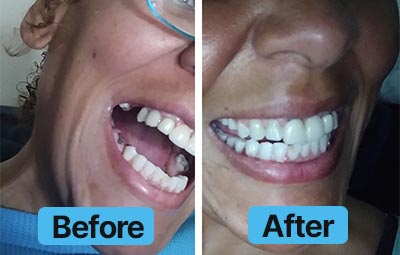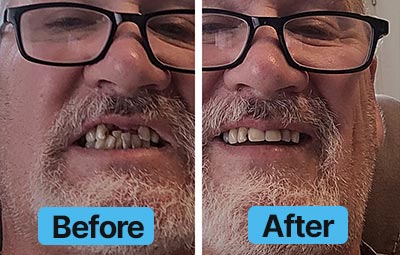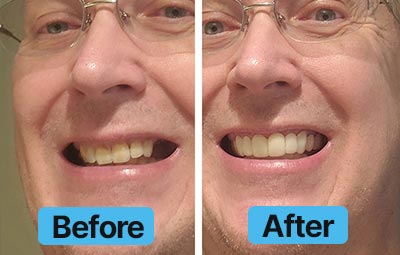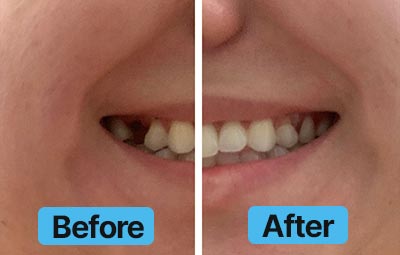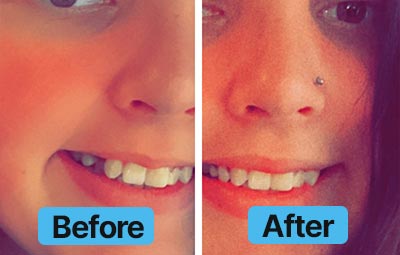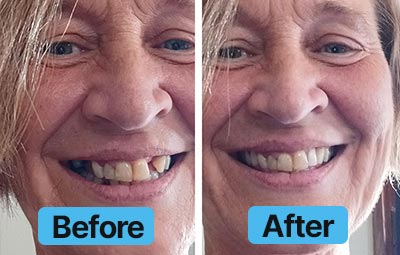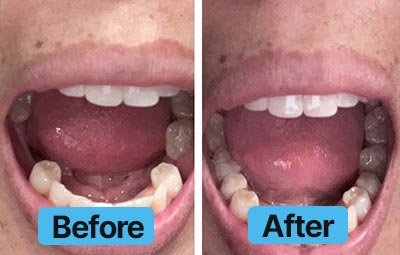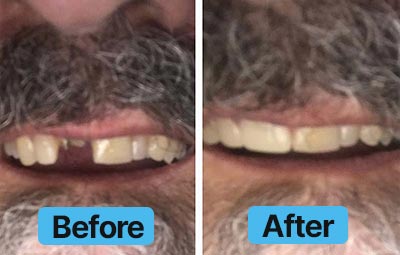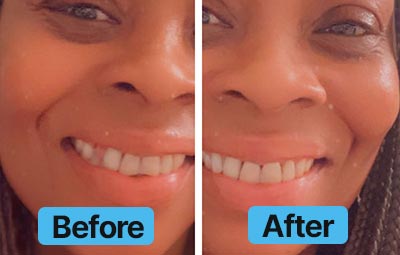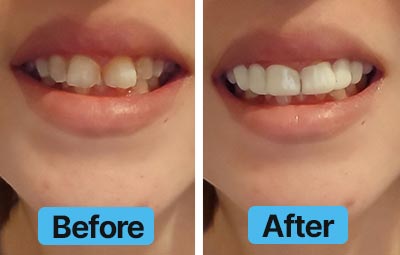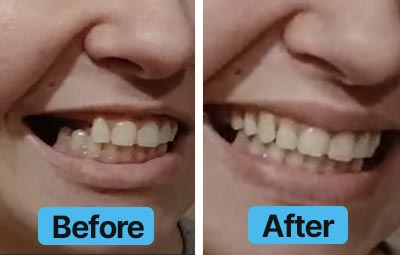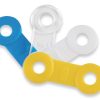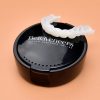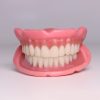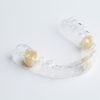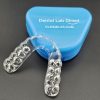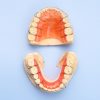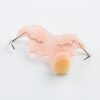
Can’t enjoy your favorite meals due to missing teeth? Dentures, which are custom-made removable oral appliances that act as replacements for lost or damaged teeth, might be just what you need.
In 2020, a surprising 40.99 million Americans wear dentures, according to U.S. Census data and the Simmons National Consumer Survey (NHCS).
“But I’m too young for dentures.”
Believe it or not, dentures aren’t just for older adults. About 3% of 18-34-year-olds, 16% of those aged 35-44, 29% between 45-55, and over half of individuals aged 55-74 rely on dentures.
But while dentures are incredible, it can be difficult to acclimate to them—specifically, eating with dentures. With our guide, you’ll be back to savoring your favorite meals in no time.
How Do I Transition to Eating with Dentures?
Adjusting to eating with dentures can feel like learning to eat all over again.
What you should expect: The first few weeks will be the toughest as your mouth adapts to the new fit and feel.
Your gums may be sensitive (especially if you’re still healing from a tooth extract), and eating may be difficult. This is completely normal, but it does mean that you’ll need to start with a soft diet.
What is a Soft Diet and How Will it Help Me Eat with Dentures?
Simply put, a soft diet is a diet that requires little to no chewing.
Examples would be mashed potatoes, yogurt, and applesauce. Protein can be tricky, but you can still get your fill with blended soups, protein shakes, or scrambled eggs. For starches, oatmeal or soft pasta is a safe bet, while mashed veggies like sweet potatoes or avocados are perfect for adding some nutrition without irritating your gums.
As you slowly get used to your dentures, you can gradually introduce foods that need a bit more chewing.
Start small—literally. Cut your meals into small, manageable pieces, and take your time.
Foods that would work well for this transition include soft bread, well-cooked pasta, tender fish, and anything similar.
You’ll need to be patient for these first few weeks to give your mouth time to adjust. But soon enough, you’ll be enjoying your meals again in no time.
What Foods Should I Avoid with Dentures?
While dentures allow you to enjoy many of your favorite foods, some should be off-limits (even after your adjustment period).
Hard, crunchy, and sticky foods can be particularly troublesome.
- Avoid things like raw vegetables, nuts, and crusty bread, which can cause discomfort and dislodge your dentures.
- Sticky foods, including caramel and chewing gum, can get stuck, making them difficult to clean out.
- Tough meats, like steak or ribs, sometimes require more force than dentures can comfortably provide.
Studies show that people with dentures have only about one-fifth to one-fourth of the bite strength compared to those with natural teeth. While there’s a wide range of bite strength in people with natural teeth, denture wearers generally fall below this range.
This means that denture wearers have less biting power (usually 50 pounds vs 250 pounds), making certain foods harder to chew.
So instead, focus on softer options that are easier to manage.
9 Tips for Eating with Dentures Comfortably
We’ll be honest: eating with dentures when you’ve never done it before is difficult. You’re not the first, and you won’t be the last person trying to learn this new way of eating. But there are some things that will make it easier.
Here are nine tips to help you get started:
- Cut your food into tiny pieces. Smaller pieces mean smaller bites, and that makes chewing so much easier.
- Use both sides of your mouth when you chew to help keep your dentures from slipping.
- Beware of hot liquids. Hot drinks can warp dentures and burn your mouth. So let your hot soup or coffee or other hot consumables cool down first!
- Drinking water with meals keeps your mouth moist, helps break down food, and makes swallowing easier (especially with dry foods like crackers). It also helps wash away any stray food particles that might get under your dentures.
- Avoid using front teeth. Chewing foods with your front teeth can dislodge your dentures. Whenever possible, use your canines and molars.
- Do your best to avoid hard, sticky, or chewy foods.
- Try eating different foods at home before going out to a restaurant. Start with softer items (like we mentioned earlier) and gradually introduce more textures.
- Applying a thin layer of denture adhesive can keep your dentures securely in place and reduce any unwanted movement while you eat. (Just a little will do—you don’t need much. Just make sure you’re using a reliable brand.)
- Keep a positive attitude. Adjusting takes time, so be patient with yourself, and don’t be afraid to experiment when you’re ready.
Regain Your Confidence
Eating with dentures doesn’t have to be a challenge when following our guide!
If you’re looking for high-quality dentures without the hefty price tag, check out Dental Labs Direct. We custom-make dentures designed just for you so you can get back to eating comfortably and confidently.
So don’t wait! Reclaim the joy of your favorite meals and visit Dental Labs Direct today.
 60 DAY warranty on all custom-made products | 1,000+ 5 Star ★★★★★ Reviews
60 DAY warranty on all custom-made products | 1,000+ 5 Star ★★★★★ Reviews

